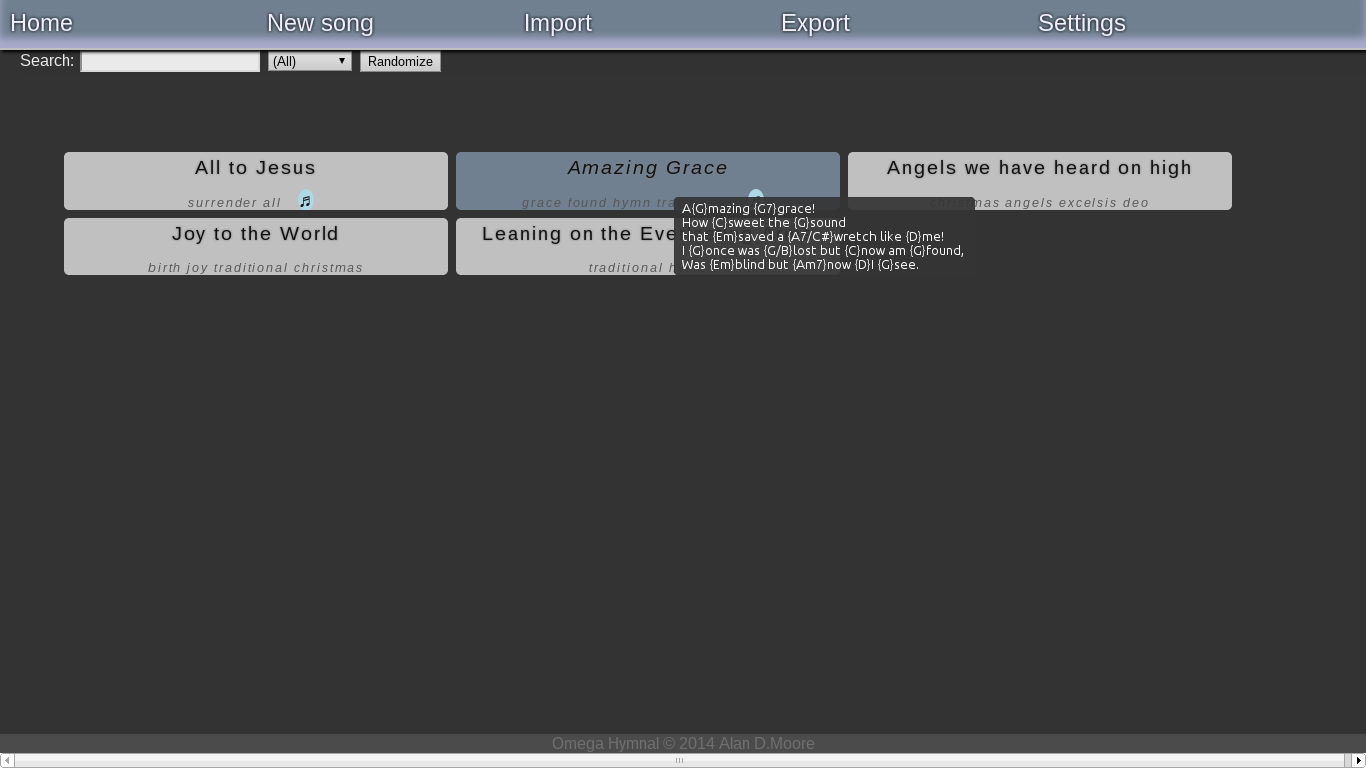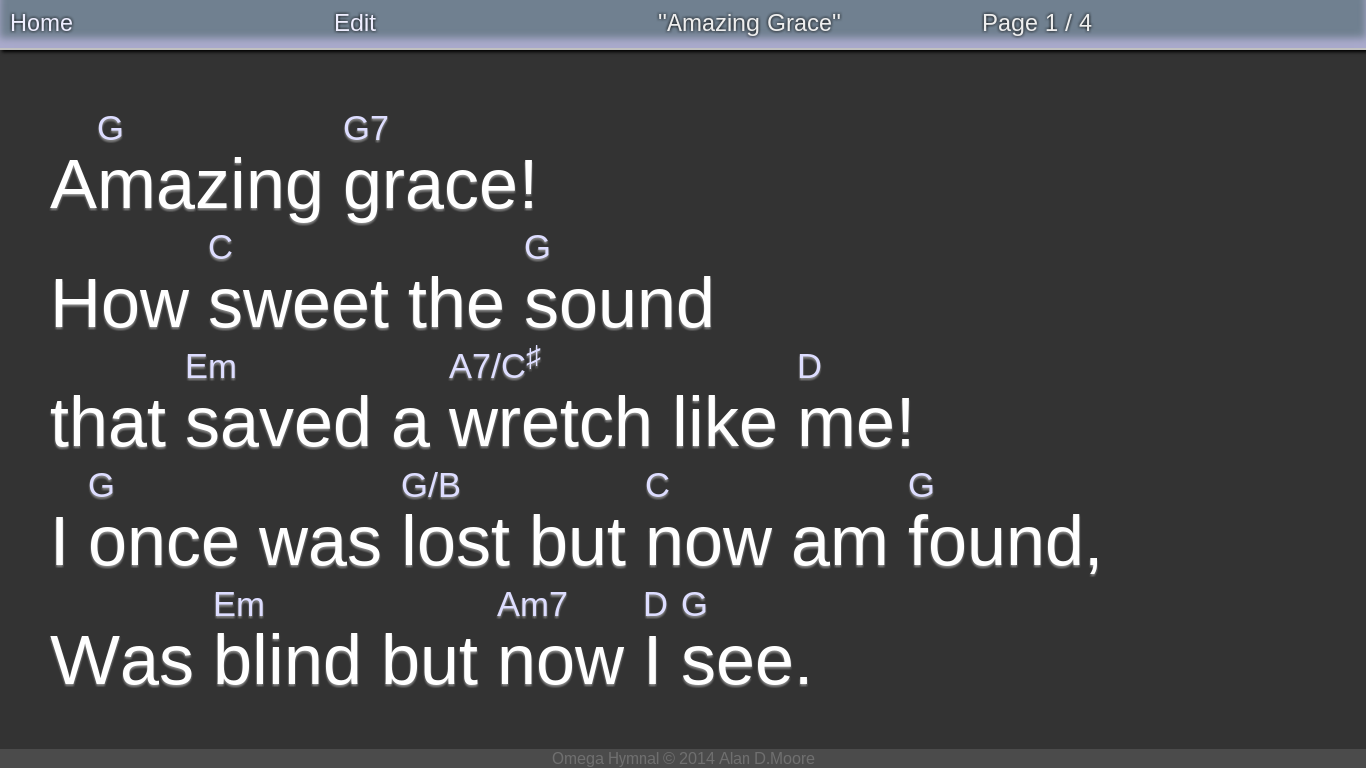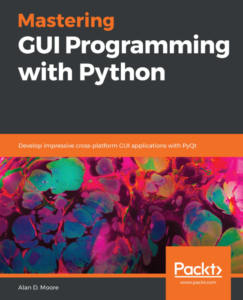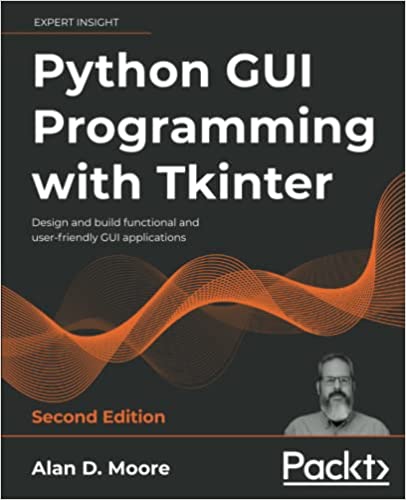Since uploading Omega Hymnal to Github ten days ago, I’ve made numerous improvements. It almost seems like it’s time to slap a version number on it and call it a release. Here’s a rundown of the features and fixes: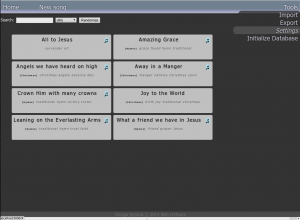
- The utility links (import/export/settings/etc) are all grouped under a “Tools” submenu
- I removed the default DB file from the source, so if you happen to use the default settings I won’t clobber your database when you “git pull”.
- Omega Hymnal can initialize a clean database if you don’t have one, or you can reinit your database if you want to start clean.
- I fixed a lot of nuttiness in the auto-text-sizer on the song screen. It’s more consistent now.
- I added the capability to manually insert pagebreaks in the lyrics using the [pagebreak] tag. This is an alternative to manually shuffling things between text boxes.
Not sure where to go next, hopefully I can convince some others to start using this and get some good ideas. I’d love to figure out a way that I can make lyrics + chord entry a lot easier and less geeky (the world apparently doesn’t share my love of markup languages), though my ideas so far either go beyond the limits of JS or just over-complicate the problem.
